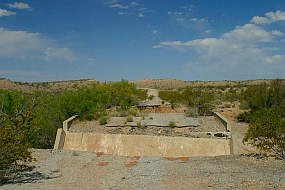 Over at the Gospel Coalition, Gene Veith responds to an article in the New York Times, “What Work Is Really For.” Veith’s “The Purpose of Work” lays out a supposedly Christian response that reads like standard boilerplate: We love our neighbor and love God through our vocational work.
Over at the Gospel Coalition, Gene Veith responds to an article in the New York Times, “What Work Is Really For.” Veith’s “The Purpose of Work” lays out a supposedly Christian response that reads like standard boilerplate: We love our neighbor and love God through our vocational work.
The problem with such standardized answers is that they are cheap and fail to take into account deeper problems. Talk to typical workers today and many of them will state they find little meaning in their work beyond receiving a paycheck. While Veith and company may hold up an ideal of the purpose of work, few people are in a position that reinforces the idea that we love our neighbor and our God through our work.
The reasons for this are many:
1. Our jobs remove us from the transactional. In an agrarian society, the producer of goods interacts directly with buyers. The cattleman sells his cattle to his neighbors. In an economy driven by craftsmen, the artisan sells her goods to a neighbor, who then displays them for other neighbors to see and appreciate. Clothing, jewelry, furniture, art, even homes go from the hand of the craftsman into the hands of the buyer and become readily apparent.The idea Veith champions that an individual loves his neighbor by providing him goods and services is easy to witness in such an economy.
But most workers today don’t witness the fruit of their work. Global conglomerates layer work in such a way that the average worker never interacts with the client. The question of “Who is my neighbor?” is never stronger than in a contemporary work environment. The purpose of work that Veith champions has no reference for most people as a result because the transaction of one individual’s work bettering the life of his neighbor goes unseen.
2. Our economies are now global rather than local. The destruction of cottage industry at the start of the industrial revolution forever changed the breadth of the market. In an expansion of the problem in #1 above, what a worker produces may not even be consumed locally, only by some distant someone. The factory worker in China makes cheap nativity scenes for a large Christian bookstore chain HQed in Dallas, and that thing she produces has no meaning for her because she never sees it displayed locally or even in its proper context.
Because globalism has destroyed the idea of local economies, what a worker makes or provides delivers less meaning than ever into the lives of his or her neighbors. We rarely see the impact of our work on members of our local community. We no longer make the shoes our neighbors wear. We do not sell the chickens our neighbors eat. These items come from some worker far away, someone we have no connection with, no history, no shared experience. And this frustrates Veith’s reasoning enormously.
3. Much of our work has become work for work’s sake. I’ve known people who have worked on projects for a year or more—only to have those projects never see the light of day. Much of work today seems like one worker pushing a rock a mile, only to have her coworker push it back. Government work seems to breed and consume itself, existing solely to sustain bureaucracy. In such environments, all meaning vanishes. We don’t so much work to help our neighbor but work to ensure more work (or to help the faceless conglomerate that has no concept of loyalty to its “neighbor” or even to the people it employs).
4. Many Christians are unwilling to support the professions of neighbors, especially those who make goods by hand. Those in the creative community are all too aware that while we Christians talk a good one about loving our neighbors as ourselves, that love does not extend to commerce. Suggest that the furniture you make by hand is worth its higher cost and righteous scoffers will erupt from the chintzy particleboard of yet more disposable, Chinese-made “woodworks.” I know this is a real issue because I’ve regularly confronted fellow Christians who argue for buying the cheap junk made in a Chinese factory over quality goods made by a fellow believer, even one in their own church. I wonder how much of Gene Veith’s home is decorated with items made—and sold to him—by fellow Christians.
5. Our neighbor is also the one who puts the pink slip on our desk or who takes our job. The way capitalism has degraded in our culture has reduced us to a dog-eat-dog mentality. We love our neighbor when our neighbor loves us. But what of our neighbor downsizing us? What happens when we are let go and replaced with a neighbor who will work for less than we can afford to? That neighbor in Malaysia we were forced to train and who later is given our job—how are we to love him? Yet these are issues many people must face regularly. What is the point of loving one’s neighbor through our work, getting rave performance reviews, then losing our jobs in a massive corporate downsizing? What meaning does unemployment have? And why is it the loneliest people in any church are the unemployed?
I could go on and on. The disconnection of modern work from purpose has never been more stark. In this environment, it should be no surprise that we suffer from so many psychological illnesses. People struggle to find any meaning for their work other than bringing home a paycheck. Who is my neighbor? And how is he benefiting from my work? You and I are struggling to find meaning to the answers our leaders give us.
This is why I find Veith’s response so bland and disconnected from reality. Christians have got to offer better answers than this. While what Veith says may be true in the kind of economy depicted in the Bible, we are no longer that economy. To many people, his answer might as well be how best to appreciate a good buggy whip.
The better question may be how we restore purpose to work by undoing what we can of globalism, returning to more of a local economy, where what you and I make and do for our neighbors can be seen as making a difference in their lives.
To the naysayers, some of this return can be found already in the locavore movement. People choose to eat food produced within a few miles of their homes. This connects neighbors and strengthens communities. Finding better ways to connect neighbor to neighbor through local commerce IS possible, but doing so will require meeting the greatest challenge of all: redoing all aspects of how we think about life and then live it.
The answers to this dilemma are far more difficult to enact than a toss away “your work is a way of loving your neighbor.” Are we Christians up to the challenge of going beyond the surface and into the deeper life?

 Along with Arthur, most folks had let the bridge slip into the Sea of Forget. Seems the bridge suffered a bout of amnesia, too, because the sudden application of a semi filled with ball bearings across its surface made the bridge forget its own sole purpose for being, and the whole thing collapsed into the gorge.
Along with Arthur, most folks had let the bridge slip into the Sea of Forget. Seems the bridge suffered a bout of amnesia, too, because the sudden application of a semi filled with ball bearings across its surface made the bridge forget its own sole purpose for being, and the whole thing collapsed into the gorge.